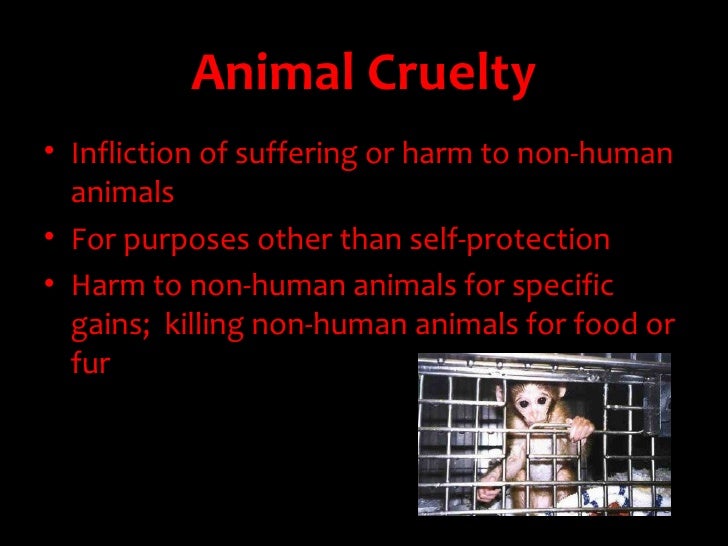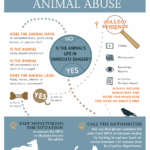Animal cruelty and animal murder are two facets of a pervasive moral dilemma concerning the treatment of non-human beings. While both involve the infliction of harm upon animals, examining the ethical implications of cruelty versus murder reveals significant differences in their underlying moral considerations. This discourse delves into why animal cruelty is more unethical than the act of taking an animal’s life. By scrutinizing various forms of cruelty, the psychological ramifications for both animals and humans, and societal attitudes toward these actions, a clearer understanding emerges.
Animal cruelty manifests in numerous forms, ranging from outright physical abuse to neglect and exploitation. Physical abuse includes acts like beating, stabbing, or otherwise physically harming an animal. Neglect might involve failure to provide adequate food, water, shelter, or veterinary care. Exploitation encompasses larger systemic issues, such as factory farming, where animals are subjected to inhumane conditions for economic gain. Each of these categories illustrates how cruelty not only inflicts harm but often thrives on a pervasive disregard for animal welfare.
What makes cruelty particularly insidious is its psychological dimension. Animals, like humans, experience suffering. They possess the capacity for pain, anxiety, and fear; these experiences are compounded in situations of cruelty. When an animal is cruelly treated, it is often subject to chronic psychological stress that can have lasting effects on its well-being. The intentionality behind such actions exacerbates their unethical nature. Unlike murder, which often signifies a fatal termination, cruelty manifests as a prolonged ordeal of suffering, characterized by the potential for ongoing harm and torment.
Moreover, it’s crucial to consider the concept of agency. Animals, while unable to advocate for themselves in human-dominated societies, exhibit a desire for autonomy and freedom from suffering. The act of inflicting cruelty directly contravenes this intrinsic need. When animals are subjected to cruelty, they lose their autonomy and are rendered powerless, intensifying the ethical violation. In contrast, murder, while atrocious and definitive, does not encompass the same protracted suffering and degradation.
Furthermore, the social implications of cruelty add layers to its unethical nature. Acts of cruelty can be reflective of broader societal problems. They often indicate an individual’s or group’s failure to recognize the intrinsic value of animal life, perpetuating a culture of desensitization. Individuals who harm animals are often found to engage in violence against other humans, suggesting a correlation between cruelty towards animals and societal violence. Thus, animal cruelty necessitates an urgent ethical reconsideration, as it is a symptom of more profound moral deficiencies in humanity as a whole.
In philosophical terms, the consideration of sentient beings presents another compelling argument. The capacity for a being to experience pleasure and suffering underlies ethical frameworks like utilitarianism. Animal murder, while morally reprehensible, terminates the possibility for any future experience, alleviating further potential suffering—however stark that reality may be. On the other hand, animal cruelty prolongs suffering and deprives the being of the natural course of its life. The ethical ramifications of prolonging suffering starkly delineate cruelty as a more significant moral failing.
Moreover, factored into this ethical discourse is the legal landscape surrounding animal rights. Many legal systems still inadequately recognize the severity of animal cruelty compared to murder. Laws often provide harsher penalties for murder than for instances of cruelty, thereby implicitly suggesting a societal hierarchy of moral transgressions that fails to account for the prolonged suffering inherent in cruelty. This discrepancy calls for a reevaluation, as it reflects a cultural tendency to prioritize human-centric moral frameworks over intrinsic values of non-human life.
It is important to acknowledge that discussions around animal cruelty and murder often intersect with issues of cultural and societal norms. In some cultures, certain animal practices, such as ritual slaughter, introspectively confront societal beliefs about the sanctity of life. However, this cultural relativism should not obfuscate the underlying ethical implications of suffering inflicted upon sentient beings. The distinction between the ethical weight of cruelty versus murder necessitates a universal framework advocating for more humane treatment of all living creatures.
In conclusion, the ethical imperative surrounding animal cruelty grants it a more significant moral weight than that derived from animal murder. Cruelty not only inflicts immediate harm but carries with it implications of prolonged suffering, devaluation of life, and societal dysfunction. It highlights a troubling trend that intertwines human morality with the treatment of non-human beings. Recognizing animal cruelty as a precisely defined ethical transgression empowers activists, lawmakers, and society to take tangible action against cruelty while advocating for a cultural paradigm shift toward a more compassionate and humane coexistence with animals. Engaging in such dialogues fosters a deeper understanding of our ethical responsibilities, encouraging a profound commitment to protecting the rights and welfare of all sentient beings.







